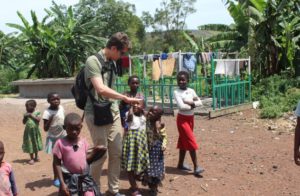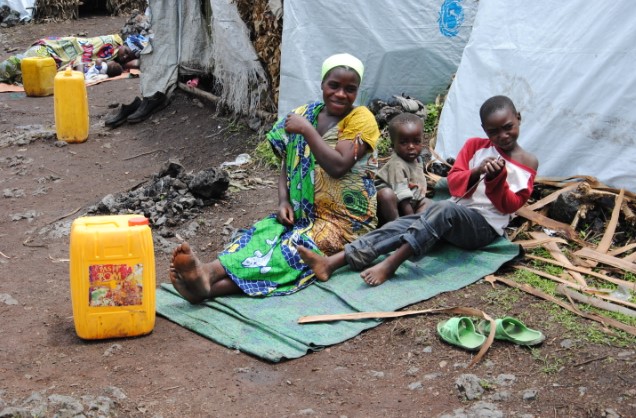Growing insecurity risks dividing the country, say the Church leaders, pointing to multiple regions where violence has flared, and also taking aim at multinational corporations that pillage natural resources.
The Bishops’ Conference of the Democratic Republic of Congo (CENCO) has sounded the alarm about the deteriorating security situation in the country, calling on the people to participate in a peaceful march on 4 December. The bishops’ main concern is that the country could disintegrate due to the violence currently being perpetrated by several rebel groups.
“The hour is grave. Our country is in danger”, warn the bishops, “if we are not careful, we are going to wake up one morning with a country which has been Balkanised”, they say, in a statement sent to pontifical foundation Aid to the Church in Need (ACN). The statement is the final declaration of an extraordinary meeting which took place in Kinshasa, from 7 to 9 November, and is signed by 42 archbishops, bishops and apostolic administrators.
The bishops note that since July the M23 rebels have once again occupied areas in North Kivu, and that they appear to have military support from Rwanda or Uganda. Ten years ago, in 2012, this group overran Goma, the regional capital in the east, and the population fears that the same could happen again. Besides the loss of human life in the ranks of the Congolese army and the civilian population, the occupation of these areas has led to massive population displacement, says the statement.

Hidden pain and decades of suffering
Maxime François-Marsal, ACN director of projects for the Democratic Republic of Congo, who visited the country just a few months ago, echoes these concerns about the situation in the country, especially in the north-eastern province of Ituri, as well as in North Kivu, where the number of fatal victims is increasing despite measures taken by the authorities. “During our trip to Goma, in North Kivu; Bukavu, in Southern Kivu; and Maniama, in Kindu, we witnessed the suffering of a region marked by more than two decades of conflict.”
“Everybody we met during the trip bore the signs of a hidden pain, caused by unspeakable suffering inflicted in some of these attacks that make up the so-called ‘instability’ in the region, but which is much more than that, and consists of rape, theft, murder of innocents and tremendous misery”, François-Marsal explains.
The bishops also call attention to the intercommunal conflicts over land in the Kwamouth and Bagata territories in the west of the country, where a large-scale intercommunal conflict over land is setting the Teke ethnic group against the non-Teke, and which has caused many deaths, and the serious problem of illegal sale of land to foreigners in Central Congo. Both these conflicts have led to forced displacement of people who have seen their homes destroyed and cemeteries desecrated.
International complicity
Quoting the adage that ‘God helps those who help themselves’, the bishops urge the people to take action. “Unfortunately,” they say, “the international community and the regional organisations which have the leverage to bring justice to our Congolese people are showing a hypocritical attitude which reveals a certain complicity.”
According to the prelates, the responsibility of the international community includes multinational companies. It is important, they write, to avoid alliances with those who have developed a form of “military profiteering” whose real motivation is the pillage of the DR Congo’s natural resources and the occupation of its territory, laying waste to its integrity and sovereignty.
“The international community, which in its duplicity blows hot and cold, carries a grave responsibility for its indulgence towards the multinationals and the countries which are predators of our natural resources,” they assert. “What sort of peacekeeping are we talking about when the number of deaths never ceases to multiply?”, the bishops ask.
Day of prayer on 4 December
The bishops invite all Christians and people of good will to fast, pray and stand in solidarity with the many displaced citizens in the country, besides asking the population to participate in a nationwide march for peace on 4 December.
“It is important to support the efforts of the bishops for peace and unity in the country, and I hope that many people of good will, all over the world, will join this day of prayer on 4 December to intercede for our brothers and sisters who are suffering and being so neglected at this particular time in their history”, François Marsal concludes.


